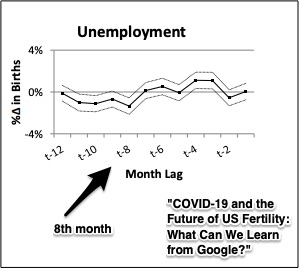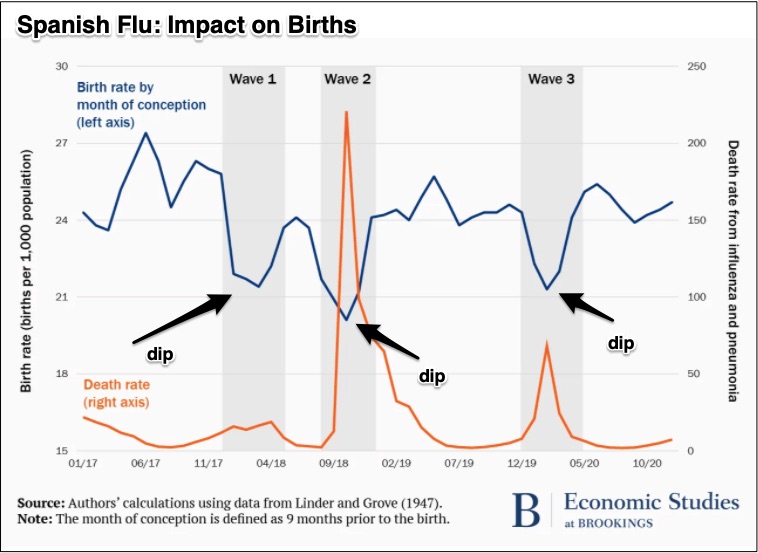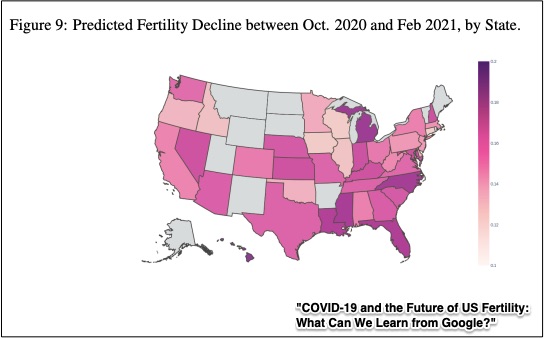Sometimes a small Google Trend can have a massive meaning.
More Google searches for morning sickness, ultrasound, and pregnancy can predict a boost in the birth rate. However, furlough, unemployment, and layoff might mean the opposite.
To determine how the pandemic will impact birth rates, Google was one of the places researchers have looked.
Pandemic Birth Rates
When the unemployment rate goes up, birth rates drop. One estimate concludes that a 1 percent rise in unemployment correlates to a 1.4 percent drop in births. So, knowing the pandemic recession sent unemployment soaring, researchers were not surprised that 34 percent of the women they surveyed planned to reduce or delay births.
Another group, after using Google search keywords, expects that births will be down 15 percent during 2021:
More specifically, you can see that a rise in Google “unemployment” searches went along with a dip in births:
Looking back corroborated what researchers expect. During the Great Depression and, for the 1918-1919 flu pandemic, births plunged by close to an average of 15 percent:
It is likely that the U.S. will have 300,000 missing babies in 2021 because of the coronavirus pandemic. The reasons for a pandemic drop in the birth rate range from economic insecurity, to stress, to the kids being home from school. They also are higher for women with less than a college education and for African Americans.
Based on the reasons, it makes sense that fertility rates will vary, depending on where you live. Louisiana will probably have one of the biggest birth deficits:
Our Bottom Line: Dependency Ratios
Most of the world’s developed nations are aging. If there is no rebound after the coronavirus pandemic, the trend could be exacerbated in the U.S. by 300,000 fewer babies. The problem with an aging population is the increasing disproportion between the labor force and those who no longer have jobs. We wind up with more people who collect entitlements like Medicare that are partially or entirely paid for by those who are employed. Expressed mathematically, we have a ballooning numerator of the aged and a relatively smaller denominator of the work force.
So, defaulting to the concept of externalities, we have a ripple of pandemic consequences that are contemporaneous and also in future decades. And, returning to Google, the word searches will then relate to Grandma.
My sources and more: Brookings, here and here, is the good place to start for a pandemic birth rate discussion. From there, this report on a Google Trends study was the ideal complement.










